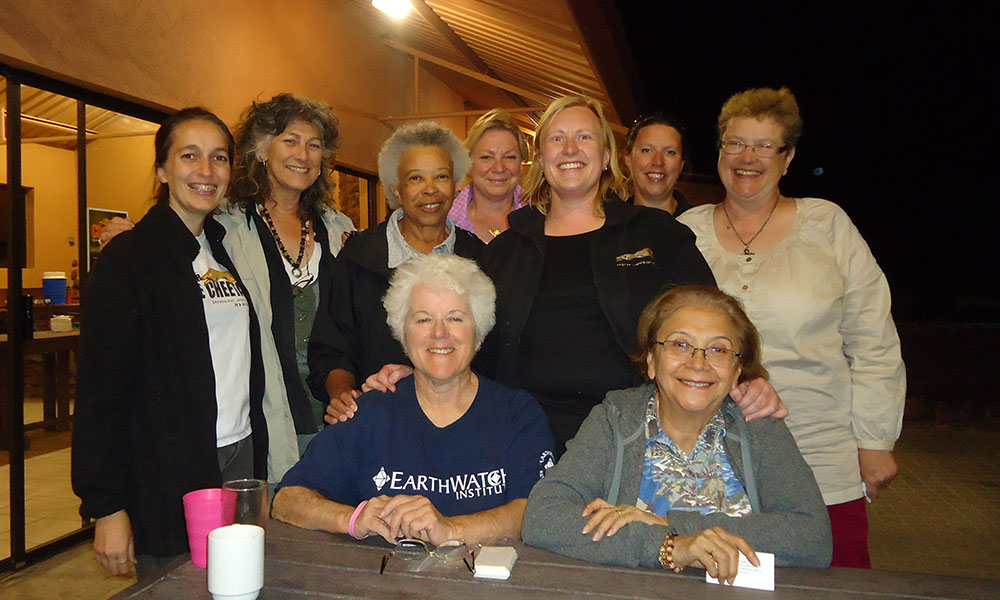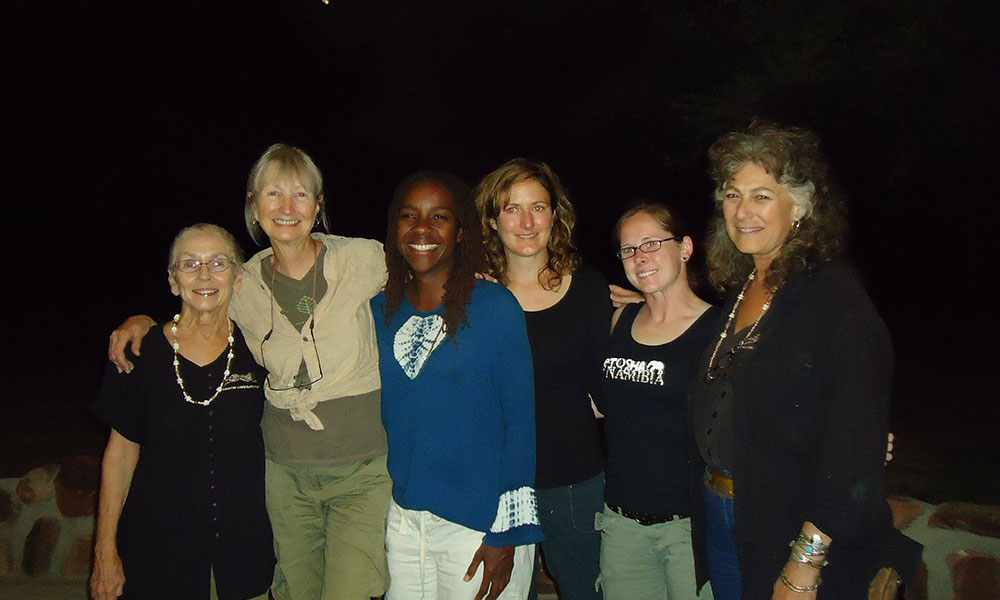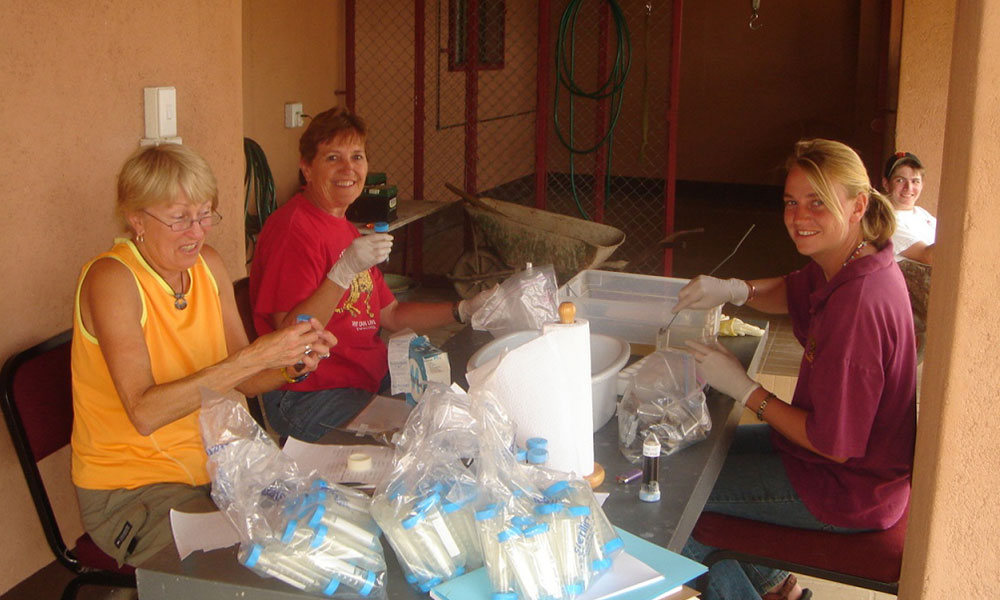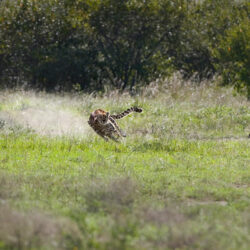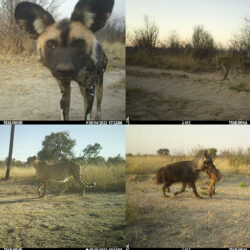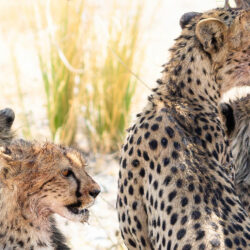Demographics and feedback on 30 years of volunteer programs at CCF
-

- by Brandy Morenko Campbell January 5, 2023
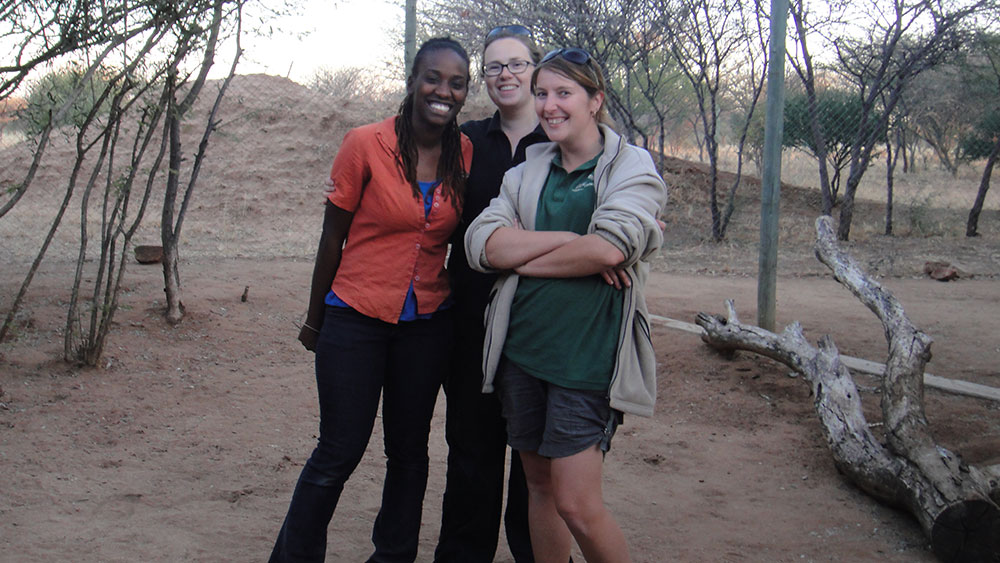
Article Summary: Women’s thirty-year contribution to cheetah conservation: An insight into volunteer-based conservation program supported by female scientists
Authors: Dr. Laurie Marker, Lauren Pfeiffer, Tracy Maketo, Annetjie Pöntinen
Female participation in the sciences is notably less than that of their male counterparts. This gender disparity is also found in the field of conservation. Cheetah Conservation Fund (CCF) has worked closely with volunteers in the form of working guests, student interns, and Earthwatch volunteers for over the past 30 years, which has provided a unique opportunity to evaluate the demographics of volunteers and obtain feedback from women on their motivations to volunteer and their volunteer experiences.
CCF researchers reviewed their volunteer records which showed that they hosted 1,905 volunteers between 1990 and 2021. Volunteer experiences lasted anywhere from two days to two years. Working guests totaled 768, while student interns totaled 486 and 709 were Earthwatch volunteers. Females contributed to nearly 74% of the volunteers annually.
Survey responses revealed that women’s motivation to volunteer remained unchanged over the 30-year volunteer period. Learning opportunities, gaining job experiences, working with organizations that have holistic approaches to conservation, having a passion for the natural world, and obtaining enjoyable experiences were among the top motivators for women. Responses also highlighted that women continue to face significant challenges that alter how and when they get involved in conservation.
Credibility and being taken seriously, personal safety during field work, family obligations, and financial ability are factors that tend to delay or hinder female involvement.
The analysis also showed that younger women were more likely to contribute via volunteerism and women with established careers were more likely to contribute financially.
CCF’s reputation for successfully using a holistic approach to wildlife conservation, while simultaneously offering female scientific mentorship in valuable volunteer experiences rooted in quality science, has led to their being a leader in advancing and involving women in conservation. CCF has shown that women can bring different and important perspectives to conservation, so efforts to understand the barriers they face is critical to developing strategies that could drive social change aimed at overcoming them. Continued exploration of these gender differences in species and habitat conservation, is critical to increasing involvement and helping women build successful careers on par with their male counterparts.
Related Reading
-
October 15, 2024
The Ecology of the Landscape Down to the Smallest Part

